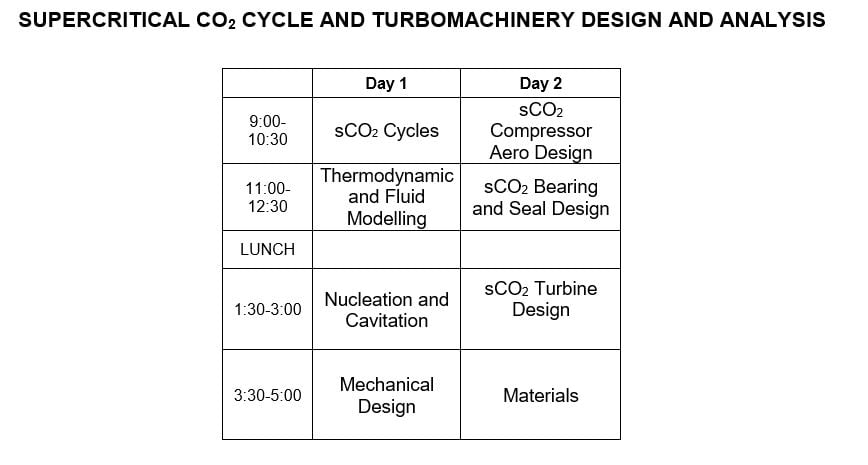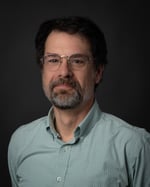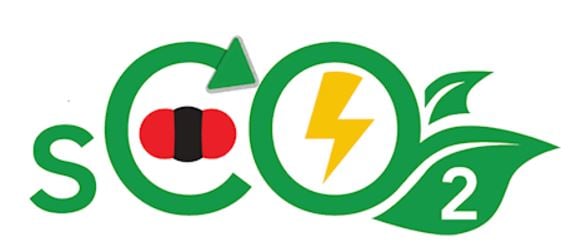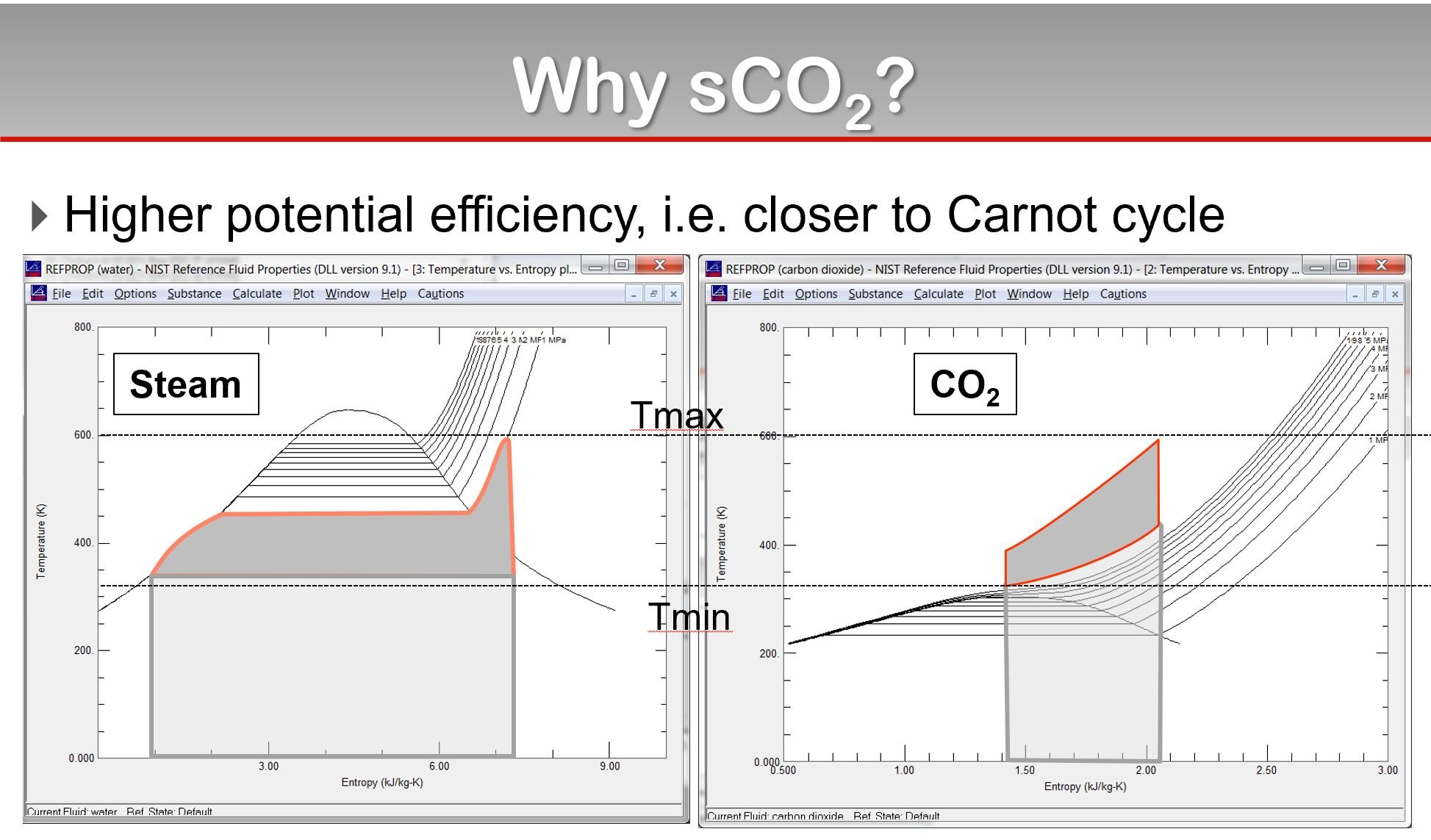Supercritical CO2 Cycle and Turbomachinery Design and Analysis
Interest in supercritical carbon dioxide (sCO2) in closed-loop power cycles has significantly increased in recent years. These cycles benefit from the unique properties of CO2 near the critical point, but these properties also pose unique challenges for turbomachinery design. Two of the most important issues in sCO2 turbomachinery are the rapid variation of the thermodynamic properties and the potential for two-phase flow phenomena. While none these issues precludes the development of effective turbomachinery designs for sCO2, they greatly complicate the modeling and prediction process, since many modeling assumptions that may be perfectly reasonable for conventional designs no longer apply.
This course seeks to educate the engineer on the basics of sCO2 design. We will identify the basic issues, trade-offs, and limitations involved in laying out cycles and their sizing requirements. The most suitable applications of sCO2 cycles will be discussed. Basic aerodynamic and structural design issues unique to sCO2 will be covered along with special concerns for design and analysis of the turbomachinery components.
Program Outline
Supercritical CO2 Cycles
- Brayton cycle
- Recompression cycle
- Allam cycle
- Applications
Thermodynamic and Fluid Modeling Concerns
- Thermodynamic modeling options
- Accuracy and computational efficiency
Nucleation and Cavitation
- Nucleation and cavitation in sCO2 machines
- Turbulence modeling considerations
Mechanical Design
- Mechanical Design
Compressor Design for sCO2
- Overview of basic design theory for compressors
- Basic sizing
- Component trade-offs
- Impacts of nonlinear fluid dynamic thermodynamic effects in the design
Bearing and Seal Design for sCO2
- Bearing and seals design required for sCO2
Turbine Design for sCO2
- Overview of basic design theory for turbines in sCO2 cycles
- Basic sizing
- Turbine Cycle Concerns
Materials
- Special materials requirements for sCO2 cycles
What You Will Learn
- An understanding of the benefits and challenges of sCO2 power cycles
- Introduction to the modeling and numerical methods required for sCO2 design
- Awareness of the special design consideration for sCO2 compressors and turbines
- Overview of advanced topics that bring special risks to sCO2 design
Note: Participants are expected to have a basic understanding of thermodynamics and fluid dynamic principles. Some prior knowledge of turbomachinery design principles is helpful but not essential.
Agenda

Optional Materials (Additional Charges Apply)
- Course Materials on a USB drive
Instructors
Mark Anderson
Mark Anderson is Chief Technology Officer at Concepts NREC. He has almost 30 years of experience in turbomachinery design and fluid modeling. He earned his B.S. in Mechanical Engineering from Northeastern University and a M.A. from the Massachusetts Institute of Technology. Mr. Anderson has conducted a wide range of research in the areas of hypersonic propulsion, turbomachinery modeling, and computational fluid dynamics. He spearheaded Concepts NREC’s meanline development, geometry parameterization, and quasi-3D and full 3D CFD, and was Vice President of Software Development for 10 years. He has authored or coauthored over 25 papers on turbomachinery, CFD, and environmental modeling.
Francis Di Bella, P.E., M.S.
Francis (Frank) Di Bella worked at Thermo Electron Corp.'s subsidiary, Tecogen, Inc., on a variety of energy-related projects for both private companies and D.O.E. projects. Such projects ranged from the development of steam atmosphere and industrial dryers to Mechanical Vapor Recompression systems and Organic Rankine Cycle waste heat recovery systems. In general, the engineering team at Tecogen, Inc. was focused on innovative ways of improving the energy efficiency of mechanical systems.
In 2000, Frank left industry to teach full-time at Northeastern University’s Engineering Technology Dept., receiving the University-wide Teaching Award in 2002 and becoming the Director of ET in 2005. Frank joined Concepts NREC in 2008, where he continues the development of energy-related systems, ranging from water wave energy systems to supercritical CO2 power generation and CO2 sequestration, to a variety of waste heat recovery systems. Frank continues to teach a variety of engineering courses in the evening.
Mr. Di Bella graduated from Northeastern University ME, Class of 1974, with B.S. in ME, and graduated from Rensselaer Polytechnic Institute in 1975 with a Masters in Mechanical Engineering.









